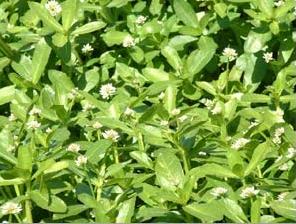
Boaties and other users of freshwater rivers and wetlands are being asked by the Waikato Regional Council to make sure boats and other gear are free of weeds before moving them between waterways after a new Waikato outbreak of one of the world’s worst weeds was discovered at Ruapuke Beach.
Alligator weed – an aquatic and land-based pest plant – is a serious threat to waterways, wetlands and productive farm land. Under the region’s pest management strategy it is targeted for total eradication at an annual cost of $220,000.
It’s believed the new infestation at Ruapuke – fortunately spotted by a Department of Conservation officer familiar with the plant – may have been spread by fishermen using contaminated nets, said Waikato Regional Council biosecurity officer Wendy Mead.
“We will be ensuring that this small site of alligator weed is removed promptly,” said Mrs Mead.
“We would ask that west coast beach users keep a look out for alligator weed this summer following this discovery.”
Alligator weed does not set seed in New Zealand but is spread by bits of the plant being moved around. Stems can break easily and it only takes a small fragment breaking off to form a new plant. It is being spread around the region by soil movement, contaminated agricultural equipment – such as diggers and harvesters – and by water users such as eel fishermen or other boat users.
“So boaties and other users of freshwater rivers and wetlands are asked to make sure any boats or other gear is free of weeds before moving between waterways and farmers are asked to make sure agricultural contractors have weed-free gear before entering their property. If fishermen seek approval to catch eels on farmers’ properties it is vital that they only use nets and hinaki that are completely clear of any weed material.”
Mrs Mead said alligator weed is fast growing and difficult to eradicate, particularly if it becomes established on land.
“Alligator weed is currently of limited distribution in the Waikato. The main infestation is in the Waikato River delta area and there are small amounts in the Waikato River from Huntly downstream, in Lake Whangape, and more recently in a stream near Waihi.
“It is also present in small amounts in Hamilton and at a few sites on cropping and dairy farms. The council is carrying out intensive control at all these sites and in most cases infestations are down to very low densities.”
Alligator weed is difficult to identify as it can be quite variable. It has leaves arranged in opposite pairs along the stem. The stem is hollow and often reddish green. Stem and leaf sizes vary. They can be compact in lawns or grazed pasture, or much larger when growing in water. Over summer alligator weed produces a clover-like white, papery flower.